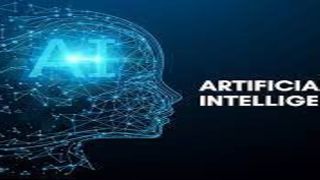
Can AI Master All Video Games?
What you need to know:
One of the most significant impacts of AI on video games is on the development process. AI is being used to automate tasks such as code generation, asset creation, and level design. This can allow developers to focus on more creative aspects of game development, such as storytelling and gameplay.
For months now, artificial intelligence (AI) has been a hot topic for a multitude of reasons. Generative AI applications that help to create text, images, and videos, like ChatGPT, Midjourney, and Pictory are all the rage at the moment.
However, while these tools have been stealing the limelight recently, AI has long been making waves in the gaming industry. In fact, according to an article by ExpressVPN gaming team, the gaming industry has helped train different types of AI functionalities, which could lead to more real-life applications.
Below, we look at several ways that AI has changed the gaming industry and what we can expect next:
AI-powered game development
One of the most significant impacts of AI on video games is on the development process. AI is being used to automate tasks such as code generation, asset creation, and level design. This can allow developers to focus on more creative aspects of game development, such as storytelling and gameplay.
For example, the highly popular Last of Us Part Two used motion matching in AI to handle the movement of characters in the game. Given that the game had over 6,000 clips to animate, using AI made the process easier and freed up the time for developers to focus on other things. However, the article from PC Gamer revealed that AI's current capabilities may not fully replace the human touch in certain creative areas of game development.
AI-powered NPCs
In addition to generating their movements and making them smoother, AI has also been deployed to create non-playable characters (NPCs). Traditionally, NPCs were scripted to behave a certain way, and to some players, this can be boring.
With AI, however, NPCs can now learn from their interactions with active players and adapt their behavior according to what’s happening in real-time. In the video game The Ghost of Tsushima, players can interact with NPCs, team up with them, and attack others in groups. This makes the game even more immersive, especially if players don’t necessarily want to go online to play with other players or if a game doesn’t allow for online gameplay.
AI-generated environments
With AI, game developers can now generate entire new worlds and environments. This could help cut down on the time taken to create a new game. This could mean that players can expect games to be created at a much faster rate than before.
While AI is still in its early stages of development, it has the potential to revolutionize the world of video games in many ways. For example, AI could be used to create more personalized gaming experiences, generate new and innovative gameplay mechanics, and even create games that can learn and adapt to the player's gaming style.
Therefore, as AI continues to advance, it has the potential to completely transform the video game industry. AI can help game developers create more immersive and personalized experiences for players. It can help generate new and innovative gameplay mechanics and can even create games that can learn and adapt to a player's gaming style. The possibilities are endless, and as AI becomes more sophisticated, we can expect to see more exciting and innovative games that blur the lines between reality and virtual reality.
With AI, the future of video games is set to be even more thrilling and engaging for players. However, it's worth noting that concerns have been raised as AI finds its way into various aspects of our lives, including education. The United Nations, for instance, has called for age limits on the use of AI tools in schools, highlighting the need for responsible and ethical deployment of this technology, even as it reshapes our gaming experiences and beyond.
Advertorial


